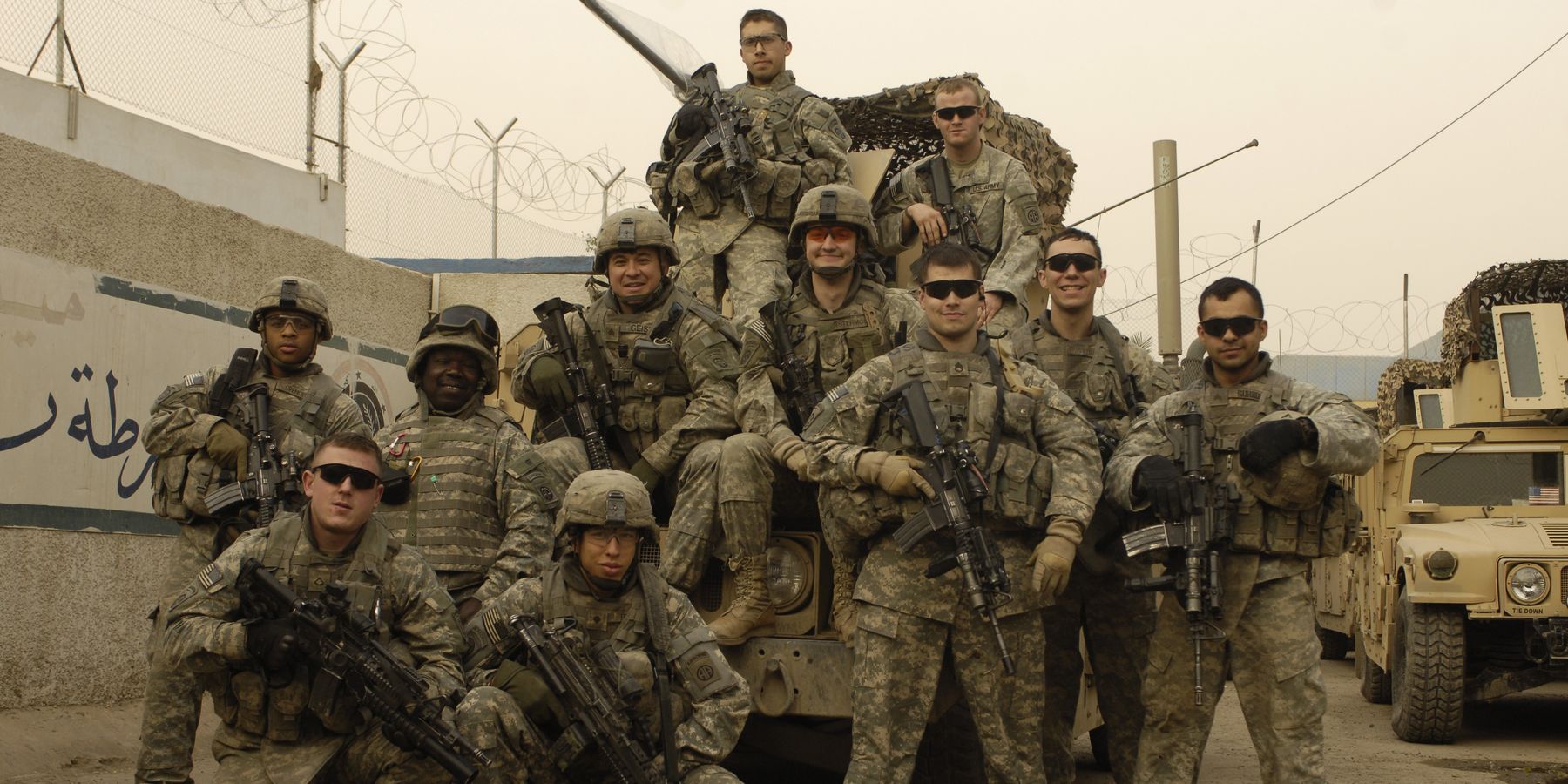On St. Patrick’s Day, March 17, 2003, President Bush issued his final ultimatum to Saddam Hussein. Two nights later, my Iraq War started inauspiciously. I was a college student tending bar in New York City. Someone pointed to the television behind me and said: “It’s begun. They’re bombing Baghdad!” In Iraq it was already early morning of March 20.
I arrived home a few hours later to find the half-expected voice message on my answering machine: “You are ordered to report to the armory tomorrow morning no later than 0800, with all your gear.”
At the time, I served in an infantry unit of the New York Army National Guard. By mid-day, our gear loaded, most of my company headed up the Hudson River to New York’s military training site, Camp Smith. The state had activated us for a homeland security mission. As the war began, one of the biggest unknowns was whether Saddam had the resources and connections to conduct terrorist strikes in the U.S. Less than two years after September 11, 2001, many feared New York City could be struck again.
Our unit spent about a week training for various scenarios that could take place on New York City’s transit system. By night we watched news reports and evaluated our military’s progress in Iraq. Before April, we were executing a mission guarding the subways alongside the New York City Police Department. I led a four-man team securing the platform under City Hall.
By the time President Bush staged his “Mission Accomplishment” moment on May 1, I was back in class, studying international relations. I expected to graduate the following January. But the mission wasn’t quite accomplished.
In August, as I prepared to begin my final semester, my unit received a verbal warning order that we would be mobilizing to deploy to Iraq. Graduation was delayed. In October I found myself at Fort Drum, New York, training for Iraq.
It wasn’t until early March that our battalion task force, including my company, was deployed into Iraq itself. On the evening of March 17, 2004, just a few days short of the war’s first anniversary, I came under and returned fire, alongside a few dozen of my battle buddies.
At the end of October, while driving the lead HMMMV of a patrol returning to base, I received a frantic call from our Battalion Commander, advising of enemy contact and calling for reinforcement and casualty evacuation. In the patrol’s lead vehicle, I didn’t wait for orders, I simply turned around and headed toward the fight.
A complex attack by insurgents with small arms and an IED killed Segun Akintade. We got there too late. It was October 28. Segun had immigrated to New York from Nigeria a few years earlier. Nicknamed Obi Wan, he was a giant man with a larger laugh. He worked at Bear Stearns to afford school and, like me, he studied at the City University of New York. He served in my fire team during that mission securing the subway at the beginning of the war.
His death was not the first for our battalion. Officially, it was the last, but tragedy struck again a month later and a few dozen kilometers away. Several soldiers we left behind in 2003 had been reassigned to another New York unit and then mobilized for the next cycle of deployments. In late November, another IED killed two more of my friends, both New York firefighters. Men we had trained with and knew well had their lives taken too soon. Several others suffered devastating wounds but survived.
All of this happened more than two decades ago. In the intervening years, more soldiers from that deployment died in Iraq and Afghanistan. Several took their own lives back at home.
In 2010, President Obama “brought all military combat personnel” home from Iraq. There are multiple problems with that statement, but the most obvious is: The enemy gets a vote as we say. If you come under fire while serving in the military, you’re a combatant (rare exceptions like chaplains prove the rule).
On March 20, 2025, we still have American soldiers in Iraq. There are roughly 2,500 U.S. troops serving overtly in a “train and advise” mission. These American service members, like their current counterparts in Syria and the greater Middle East, are at risk. The attack on Tower 22 in Jordan last year, which killed three young American reservists, demonstrates the vulnerability of thinly stretched U.S. forces, deployed with no clearly elaborated national interest to the United States. This vulnerability will sooner or later be exploited again to the detriment of our troops.
In the 22 years since I received the news that I would be mobilized to support the war in Iraq, over 4,000 American troops have fought and died there. Some of these deaths were deeply personal. The costs to families have been tragic. With the Islamic State’s caliphate long-since defeated, the so-called logic for U.S. forces to be in Iraq is gone.
After 22 years, it’s time to put an end to our “boots on the ground” mission in Iraq, draw down our presence in the Middle East, and only risk the lives of American military men and women when there is an undeniable national interest.
















